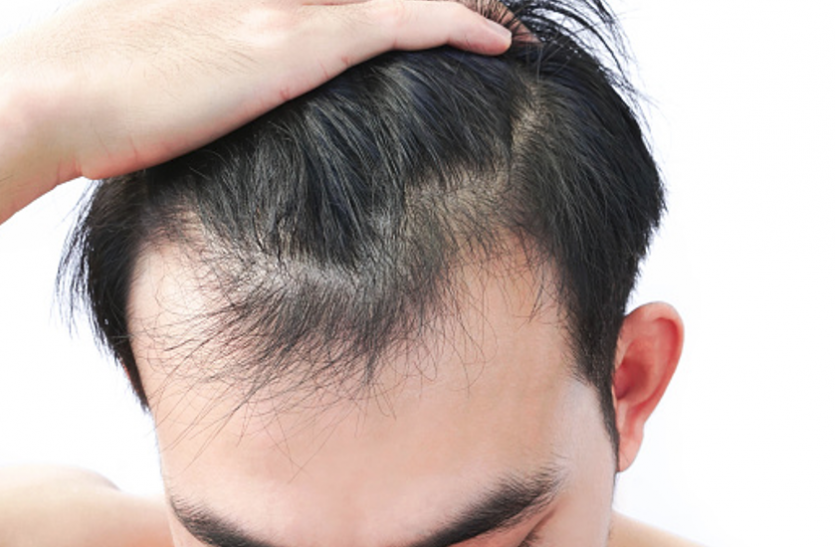Hair loss can be broadly categorised into scarring (cicatricial) alopecia and non-scarring (non-cicatricial) alopecia, with hair loss on the scalp further classified as focal or diffuse alopecia. Hair loss can occur anywhere on the body, but most commonly affects the scalp. Abundant scalp hair has societal and cultural importance. Loss of scalp hair, eyebrows, and eyelashes frequently leads to psychological distress.
What are the causes of hair loss?
The main causes of hair loss depend on whether the type of hair loss is scarring or non-scarring, and focal or diffuse. Scarring alopecia is rare and is caused by injury, infection, and inflammatory skin disorders such as discoid lupus erythematosus, lichen planopilaris, and folliculitis decalvans.
Non-scarring focal alopecia is usually caused by tinea capitis, a fungal skin infection, or alopecia areata (an autoimmune disorder). Diffuse hair loss may follow hair shedding, which is usually stress-induced hair loss (telogen effluvium) or is due to genetically determined male or female pattern hair loss. Diffuse hair loss can also be caused by alopecia areata, medications, and various systemic illnesses including anaemia, hyperandrogenism, and thyroid disease. Psychiatric disturbances, such as acute anxiety and endogenous depression, have also been considered possible causes of diffuse hair shedding.
What are the psychological effects of hair loss?
Research into the psychological problems associated with hair loss is limited. The evidence confirms that the experience of hair loss is psychologically damaging, causing intense emotional suffering, and often leading to personal, social, and work-related problems. People with severe hair loss are more likely to experience psychological distress than those with mild hair loss . The loss of hair changes a person’s looks, particularly when the eyelashes and eyebrows are affected as they define a person’s face. Hair loss may be seen as a failure to conform to the norms of physical appearance within society.
The relationship between hair loss and psychosocial consequences may be complicated by hair loss that eventuates from a stressful experience or life event, which then leads to further distress, anxiety, and depression. Compared with the general population, people with hair loss have an increased prevalence of psychiatric disorders, including a major depressive episode, an anxiety disorder, social phobia, or a paranoid disorder.
Perception of men with androgenetic alopecia by women
Baldness has significant negative psychosocial effects. It has been asserted that the negative effects of baldness are often trivialized by the nonbald. Most studies concerning the perception of baldness have focused on the perceptions of the bald by themselves. A questionnaire on the perception of balding men was answered by 130 women (age range 15-58 years, 90 nonbalding men (age range 18-72 years) and 30 balding men (age range 20-63 years). Balding men were perceived as being older and less attractive by over 90% of respondents. A perception that balding men are less confident, duller, and less potent was reported by less than half of respondents.
In conclusion, the perception of balding men by others was similar to the perception of balding men by themselves. It is likely that androgenetic alopecia adversely influences social interactions of those who are subject to it.


Comment here